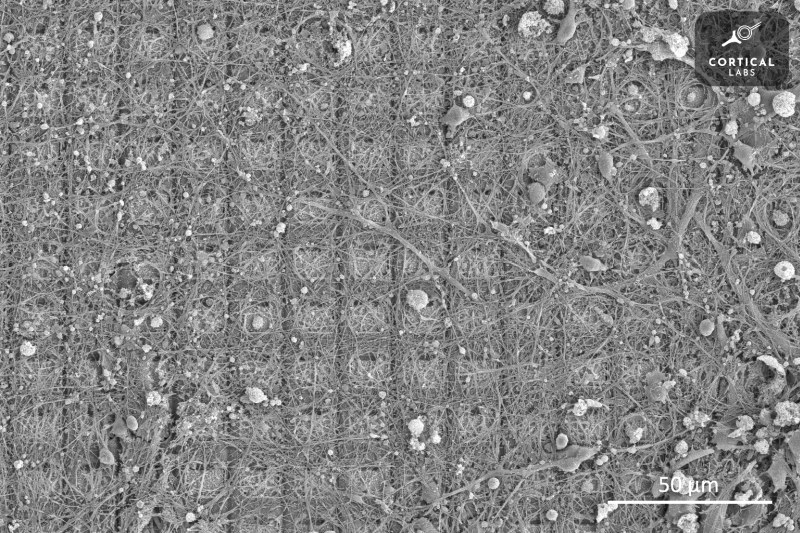The team has for the first time shown that brain cells living in a dish can perform goal-directed tasks – in this case the simple tennis-like computer game, Pong. The results of the study are published today in the journal Neuron.
“We have shown we can interact with living biological neurons in such a way that compels them to modify their activity, leading to something that resembles intelligence,” says lead author Dr Brett Kagan, who is Chief Scientific Officer of biotech start-up Cortical Labs, dedicated to building a new generation of biological computer chips. His co-authors are affiliated with Monash University, RMIT University, University College London and the Canadian Institute for Advanced Research.
“DishBrain offers a simpler approach to test how the brain works and gain insights into debilitating conditions such as epilepsy and dementia,” says Dr Hon Weng Chong, Chief Executive Officer of Cortical Labs.
Having determined some ‘normal’ abilities, the team plans to investigate what happens to DishBrain when alcohol and drugs are introduced.
“We’re trying to create a dose response curve with ethanol – basically get them ‘drunk’ and see if they play the game more poorly, just as when people drink,” says Kagan.
|
|
As the press release notes, “Live biological neurons show more about how a brain works than AI ever will.” Thus making clear that modelling can go only so far – actual brain cells are a better platform for investigation.
While scientists have for some time been able to mount neurons on multi-electrode arrays and read their activity, this is the first time that cells have been stimulated in a structured and meaningful way.
“In the past, models of the brain have been developed according to how computer scientists think the brain might work,” Kagan says. “That is usually based on our current understanding of information technology, such as silicon computing.
“But in truth we don’t really understand how the brain works.”

Scanning Electron Microscope image of a neural culture that has been growing for more than six months on a high-density multi-electrode array. A few neural cells grow around the periphery and have developed complicated networks which cover the electrodes in the centre. Credit Cortical Labs
Kagan says one exciting finding was that DishBrain did not behave like silicon-based systems. “When we presented structured information to disembodied neurons, we saw they changed their activity in a way that is very consistent with them actually behaving as a dynamic system,” he says.
“For example, the neurons’ ability to change and adapt their activity as a result of experience increases over time, consistent with what we see with the cells’ learning rate.”
That potentially opens the door for completely new ways of understanding what is happening with the brain.
To perform the experiment, the research team took mouse cells from embryonic brains as well as some human brain cells derived from stem cells and grew them on top of microelectrode arrays that could both stimulate them and read their activity.
Electrodes on the left or right of one array were fired to tell Dishbrain which side the ball was on, while distance from the paddle was indicated by the frequency of signals. Feedback from the electrodes taught DishBrain how to return the ball, by making the cells act as if they themselves were the paddle.
“We’ve never before been able to see how the cells act in a virtual environment,” says Kagan. “We managed to build a closed-loop environment that can read what’s happening in the cells, stimulate them with meaningful information and then change the cells in an interactive way so they can actually alter each other.”
“This new capacity to teach cell cultures to perform a task in which they exhibit sentience – by controlling the paddle to return the ball via sensing – opens up new discovery possibilities which will have far-reaching consequences for technology, health, and society,” says Dr Adeel Razi, Director of Monash University’s Computational & Systems Neuroscience Laboratory.
Chong says he was excited by the discovery, but it was just the beginning.
“This is brand new, virgin territory. And we want more people to come on board and collaborate with this, to use the system that we’ve built to further explore this new area of science,” he says.
Chong concluded, “As one of our collaborators said, it’s not every day that you wake up and you can create a new field of science.”











































